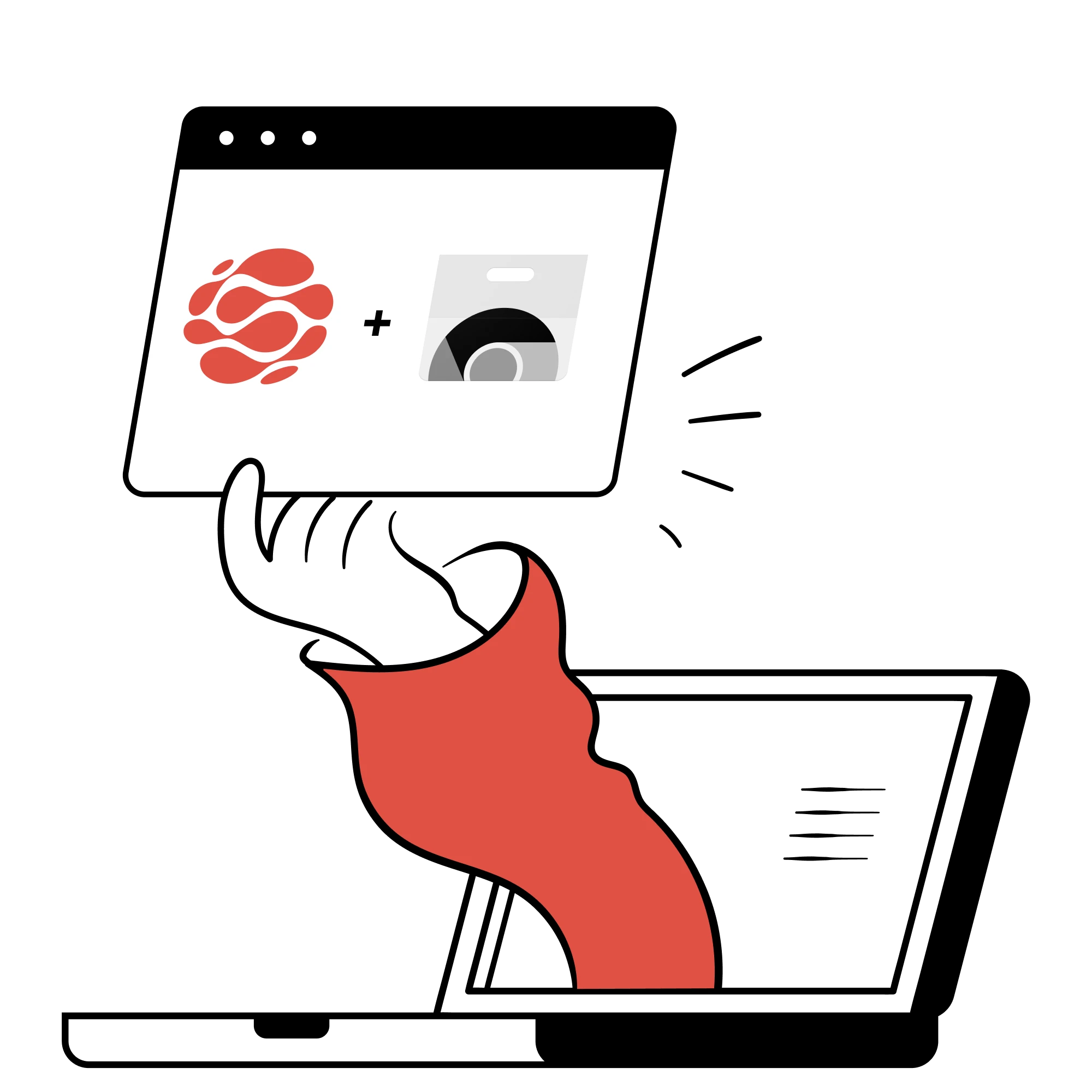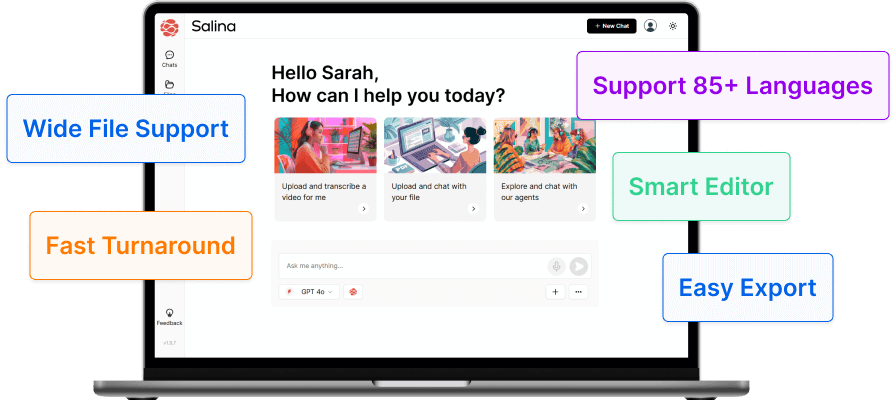Stuck with stagnant email marketing results? AI can create engaging content and improve email deliverability. Check out these 15 Essential AI Email Marketing Tools to enhance your campaigns and increase engagement.
Among various digital marketing channels, email marketing is often considered less relevant compared to the rise of social media in the past decade. However, what people fail to see is that it remains to be a powerful tool.
Projected to exceed 12 billion dollars this year, email marketing consistently shows a positive trend also in years to come and despite assumptions that social media has overshadowed it, data suggests its enduring effectiveness.
Initially skeptical myself, I too questioned it and just last week it led me to this post by Neil Patel wherein he shed light on the misconception of its decline. The whole point is that while it isn’t widely discussed, email marketing remains a prevalent and impactful strategy in the marketing landscape. The true disadvantage is that if we as marketers don’t employ them in our already existing strategies.
Neil wholeheartedly expresses that “email marketing is not dead”
Its sustained relevance, enduring effectiveness, and growing integration with AI ensure its future of continued evolution. Let’s take a look at top AI email marketing tools that you can integrate with your workflow today and see just how email marketing is continuing to evolve in the space.
What is AI and its role in Email Marketing?
Artificial Intelligence in email marketing uses machine learning and other advanced analytics to understand and predict consumer behavior. It allows for email campaigns that are data-driven and perform like a member of your marketing team that’s on 24/7.
Here are some of the roles AI has specifically in email marketing:
- Predictive Analytics: AI can predict the best time for an email to be opened and the optimal frequency for follow-up emails.
- Personalization: AI tools can help tailor your messages to individual subscriber preferences at scale.
- Automated Optimization: With AI, your tests can be smarter. From subject lines to the color of your CTAs, AI can help predict what will be most successful before a campaign is sent.
- Enhanced Segmentation: AI tools can examine a vast array of data to split your email list into numerous segments ensuring that each campaign goes to exactly the right group of recipients.
In Steve Kilberg’s informative LinkedIn post above, he emphasizes a key strategy often missed in modern digital marketing: email segmentation. How sending out a generic message to all your subscribers may appear efficient, but it’s like yelling in a crowded room – getting anyone’s attention becomes challenging.
Recognizing the important roles AI has in improving email marketing campaigns, from predictive analytics to automated optimization, strongly supports its inclusion in any digital marketing plan. But how do you choose the best AI tools for your needs? The next part will discuss the benefits of using AI in email marketing and then look at specific tools to show how they boost efficiency and effectiveness in your marketing efforts.
Benefits of using AI in Email Marketing
Improved Content Personalization
AI helps marketers create truly personalized content by analyzing data from multiple sources. This includes previous interactions with email campaigns, but also website visits and transactions. The result is content that resonates more deeply with your audience, leading to higher engagement and conversions.
Enhanced Customer Insights
By analyzing customer data, AI can give profound insights into customer preferences, purchase patterns, and lifecycle stages. Marketers can then segment their audience more effectively, targeting the right people with the right message at the right time.
Increased Efficiency and Productivity
AI in email marketing streamlines many labor-intensive tasks. It can automate things such as personalization, A/B testing, and even some campaign decisions. This means your marketing team can focus on strategic activities rather than manual workload.
Higher Conversion Rates
With better personalization and more timely emails, AI tools help to move subscribers through the conversion funnel more effectively. It’s like having an AI-powered salesperson who knows your customers as soon as they walk in the (virtual) door.
Touching on the key benefits that AI can offer in email marketing is just the beginning. This YouTube video delves more deeply into the advantages, further insights, and considerations to keep in mind when seeking tools. While I’ve synthesized similar learnings in my content below, the YouTube video offers a lengthier yet meaty conversation that you might find valuable as well.

Key Considerations When Choosing AI Email Marketing Tools
Selecting the right AI email marketing tool is a critical decision for any marketing team. Here are key considerations to keep in mind:
Integration with Existing Tools and Platforms
Any AI tool you choose should seamlessly integrate with the marketing automation and CRM platforms you’re already using. The more native the integration, the less time and resources you’ll need to dedicate to making everything play nice together.
Ease of Use and User Interface
The most powerful tool is worthless if it’s too complex for your team to use effectively. Look for tools that have an intuitive user interface and good onboarding processes.
Customization and Flexibility
Not all AI tools are created equally, nor do they serve all business models. Ensure the tool you choose can be customized to work for your specific needs.
Security and Data Privacy
With great power comes great responsibility. Make sure the tool you choose is vigilant about data privacy and security, especially when handling large amounts of customer data.
These factors not only ensure a smooth integration with your current operations but also guarantee that the tool meets your business’s unique needs, from user interface usability to data privacy compliance.
Moving from theory to practical application, the next section will connect these considerations with actionable tool recommendations. By evaluating specific AI email marketing tools, we will illustrate how they measure up to these standards, empowering you to make an informed decision that elevates your digital marketing endeavors to new levels.
Top 16 AI Email Marketing Tools that Elevate Your Campaigns
AI-powered Email Marketing Tools for Content Creation
1. Jasper
I’ve been experimenting with AI copywriting tools, and Jasper stands out for its ability to craft long-form content like compelling email narratives. It’s a game-changer for tackling all aspects of an email, from subject lines to personalized product descriptions.
Pros
- Long-form content editor
- Helps craft compelling email copy across all elements
- Offers personalized product descriptions.
Cons
- Can be expensive
- May require editing for optimal results
- Limited control over creative direction compared to human copywriters.
Best for: Businesses of all sizes that need help creating comprehensive email copy, including subject lines, greetings, body content, and CTAs.
Pricing: Starts at $49/month.
Learning Curve: Medium. Jasper offers a user-friendly interface, but mastering advanced features may require some practice.
Integrations: Integrates with popular marketing automation platforms like HubSpot and Salesforce Marketing Cloud.
Having firsthand experience with Jasper, I can confirm its effectiveness in creating comprehensive email content, from subject lines and greetings to body content and CTAs. Learn how to maximize your use of Jasper in this helpful instructional video:
2. Copy AI
Stuck on crafting catchy subject lines, greetings, or engaging email body content? Copy AI can help! This tool offers a dedicated “Brainstorm” mode that generates creative text formats, headlines, and ideas specifically for marketing copy, including email content.
Pros
- User-friendly interface
- Affordable, helps write catchy subject lines and greetings
- Personalizes content based on audience segments.
Cons
- May require more editing for complex email copywriting
- May not offer the same level of detail and features as some other tools.
Best for: Businesses or individuals on a budget who need a user-friendly AI writing assistant for crafting email greetings, subject lines, and basic email content with some personalization options.
Pricing: Free plan with limited features, paid plans start at $49/month.
Learning Curve: Low. Copy AI offers a very user-friendly interface with a minimal learning curve.
Integrations: Copy AI does not currently offer integrations with other marketing platforms. Although this limitation may affect some users, it still stands as a strong choice with significant benefits. Stay tuned for upcoming enhancements to their features.
From crafting captivating subject lines to engaging email body content, this tool simplifies the process with its user-friendly interface and personalized text generation capabilities. Explore more on how to use Copy.ai with this video:
3. Phrasee
Open rates are crucial for email success. Tools like Phrasee that analyze content and target audiences to generate high-performing subject lines have the potential to be a real email marketing game-changer.
Pros
- Analyzes email content and target audience to generate high-performing subject lines.
- Improves email open rates.
Cons
- Limited functionality compared to other tools on this list.
- Only focused on subject line optimization.
Best for: Businesses or email marketers who struggle with crafting compelling subject lines and want to improve open rates.
Pricing: Custom pricing based on usage.
Learning Curve: Low. Phrasee offers a user-friendly interface for inputting content and generating subject line variations.
Integrations: Integrates with some popular email marketing platforms such as Iterable and Adobe Marketo Engage.
4. Smartwriter
The beauty of AI email marketing tools is their integration with existing workflows. Platforms like Smartwriter seamlessly connect with popular email marketing platforms, offering AI-powered copywriting specifically tailored for email campaigns. This can be a huge time-saver for busy marketers.
Pros
- Integrates with popular email marketing platforms.
- Offers AI-powered copywriting specifically for email campaigns.
- Personalizes greetings.
- Suggests conversion-oriented content.
Cons
- May require some integration setup with your email marketing platform.
- May not be as versatile as long-form content editors like Jasper.
Best for: Businesses already using popular email marketing platforms who want AI-powered assistance with crafting email copy specifically tailored for email campaigns.
Pricing: Starts at $59/month
Learning Curve: Medium. Requires familiarity with your chosen email marketing platform and some understanding of AI-powered copywriting features.
Integrations: Integrates with popular email marketing platforms like Mailchimp, ActiveCampaign, and Klaviyo.
Seamlessly integrating with popular email marketing platforms, Smartwriter enhances the efficiency of crafting personalized email content tailored for successful campaigns. To see an example of what Smartwriter can do, check out this video:
5. Rytr
For those on a budget, user-friendly AI writing assistants like Rytr are a great option. They can help craft catchy subject lines, greetings, and even personalize content based on audience segments – a valuable asset for any email marketing strategy.
Pros
- User-friendly interface and affordable.
- Helps write catchy subject lines and greetings.
- Personalizes content based on audience segments.
Cons
- May require more editing for complex email copywriting.
- May not offer the same level of detail and features as some other tools.
Best for: Businesses or individuals on a budget who need a user-friendly AI writing assistant for crafting email greetings, subject lines, and basic email content with some personalization options.
Pricing: Free plan with limited features, paid plans start at $9/month.
Learning Curve: Low. Rytr offers a very user-friendly interface with a minimal learning curve.
Integrations: Rytr does not currently offer integrations with other marketing platforms. Although this limitation may affect some users, it still stands as a strong choice with significant benefits. Stay tuned for upcoming enhancements to their features.
Rytr, a user-friendly AI writing assistant that caters to those on a budget. Crafting captivating subject lines, greetings, and personalized content based on audience segments becomes effortless with Rytr’s affordable and intuitive features. Check out an example of how to use Rytr in the video below.
6. AI Collective
AI Collective is an all-in-one platform designed to integrate over 50 AI models, including GPT-4 and Claude Instant, offering diverse content creation capabilities. The platform excels in generating unique content such as blog posts, social media updates, and graphics, and provides specialized templates and AI-generated suggestions for effective email campaigns. With AI-driven insights for personalization, AI Collective helps users optimize their content strategy comprehensively.
Pros
- Diverse AI models for varied and unique content creation.
- Specialized email optimization with templates and AI suggestions.
- Extensive content variety including blog posts, social media updates, and graphics.
Cons
- Subscription cost, though offers savings compared to individual AI subscriptions.
- Requires familiarity with multiple AI tools to maximize potential.
Best for: Businesses and content creators seeking a comprehensive platform that makes use of multiple AI models for content creation, email optimization, and personalization.
Pricing: Starts at $17/month or $67/year for personal use with 5,000 free credits.
Learning Curve: Moderate. The platform’s extensive features and multiple AI integrations require some learning but are designed to make the content creation process more efficient.
Integrations: AI Collective integrates with various AI models for enhanced content creation, though specific external platform integrations are not detailed on the website.
This video provides an in-depth look at AI Collective’s features. Check it out for a more detailed understanding of how the platform connects with OpenAI’s GPT models and Hugging Face’s marketplace, offering significant cost savings compared to individual AI subscriptions.
AI-powered Email Marketing Tools for Personalization and Segmentation
7. Mailchimp
Getting started with AI email marketing can feel overwhelming. But platforms like Mailchimp offer a gentle introduction with features like predictive segmentation. This can be a great way to dip your toes into the water of AI-powered targeting and see how it can boost the effectiveness of your campaigns, even with a basic email list.
Pros
- Easy to use.
- Affordable
- Offers basic AI-powered features like predictive segmentation for automated grouping based on predicted behavior.
Cons
- Limited AI features compared to more specialized tools.
- May not be suitable for highly complex personalization needs.
Best for: Businesses starting out with email marketing who want to explore basic AI-powered segmentation for targeted campaigns.
Pricing: Free plan for up to 500 subscribers, paid plans start at $13/month.
Learning Curve: Low. Mailchimp offers a user-friendly interface for managing email lists and creating basic campaigns.
Integrations: Integrates with a wide range of popular CRMs, e-commerce platforms, and marketing automation tools.
- CRMs: Salesforce, Zoho CRM, HubSpot CRM
- E-commerce Platforms: Shopify, WooCommerce, BigCommerce
- Marketing Automation Tools: Zapier, ActiveCampaign, MailerLite
Mailchimp, a platform that offers an easy entry into AI features such as predictive segmentation. Learn how Mailchimp’s fundamental AI functions can enhance the impact of your email campaigns by watching this informative video:
8. Klaviyo
For businesses that live and breathe e-commerce, advanced personalization is key to unlocking higher engagement. Klaviyo really shines in this area. Their AI features allow for dynamic content insertion based on subscriber data, making emails feel like a one-on-one conversation with each customer. This level of personalization can have a dramatic impact on click-through rates and conversions.
Pros
- Powerful AI features for personalization.
- Excels at dynamic content insertion based on subscriber data.
- Allows for highly targeted campaigns.
Cons
- Can be complex to set up and use for beginners.
- With higher pricing compared to Mailchimp.
Best for: E-commerce businesses that need advanced personalization features and dynamic content for targeted email campaigns based on purchase history and subscriber behavior.
Pricing: Free plan for up to 250 subscribers, paid plans start at $35/month.
Learning Curve: Medium to High. Klaviyo offers powerful features, but the learning curve can be steeper for beginners.
Integrations: Integrates with popular e-commerce platforms, CRMs, and marketing automation tools.
- E-commerce Platforms: Shopify, WooCommerce, BigCommerce, Magento
- CRMs: Salesforce, Zendesk, HubSpot CRM
- Marketing Automation Tools: Zapier, ActiveCampaign, Drip
When it comes to dynamic content insertion customized to subscriber data, Klaviyo is a known to be a powerful tool. Go through how Klaviyo’s AI features can enhance your email campaigns to create personalized interactions with each customer in this video tutorial:
9. HubSpot
HubSpot has gained recognition for its ability to cater to businesses of all sizes. Their user-friendly interface is known for being intuitive, even for those who are new to marketing automation. A key strength is the seamless integration with their CRM system, offering a unified view of your customer data. This combined functionality can be a game-changer for businesses looking to personalize their email marketing efforts.
Pros
- User-friendly interface.
- Integrates with HubSpot CRM.
- Offers AI-powered features for segmentation, targeting, and personalization.
- Personalizes email content based on customer data.
Cons
- May not be as powerful or feature-rich as some enterprise-level marketing automation platforms.
- Pricing can be expensive for larger businesses with complex needs.
Best for: Businesses of all sizes that want a user-friendly marketing automation platform with AI features for segmentation, targeting, and personalized email campaigns.
Pricing: Starts at $45/month (pricing may vary).
Learning Curve: Low to Medium. HubSpot offers a user-friendly interface with a gentle learning curve.
Integrations: Integrates with a wide range of marketing automation tools, CRMs, web analytics platforms, and social media platforms.
- CRMs: Salesforce, Microsoft Dynamics 365, Zoho CRM
- Marketing Automation Tools: Zapier, PieSync, Act-On
- Web Analytics Platforms: Google Analytics, Facebook Insights, ClickFunnels
- Social Media Platforms: Facebook, Instagram, LinkedIn, Twitter
Discover how HubSpot’s AI-powered features can transform your email marketing. Watch this tutorial video on setting up HubSpot to explore segmentation, targeting, and personalization.
10. ActiveCampaign
Sometimes, the key to successful email marketing lies in anticipating customer behavior. Platforms like ActiveCampaign offer AI-powered features like customer journey mapping and predictive sending. This allows you to segment your audience based on predicted behavior and trigger personalized campaigns at just the right moment in their customer journey. This kind of strategic targeting can significantly improve the relevance and impact of your email campaigns.
Pros
- Offers AI-powered features like customer journey mapping and predictive sending.
- Allows for segmentation based on predicted behavior.
- Triggers personalized campaigns based on customer journeys.
Cons
- Can be a complex platform to learn and use.
- Pricing can be expensive for smaller businesses.
Best for: Businesses that want a comprehensive marketing automation platform with advanced AI features for segmentation, personalization, and triggered email campaigns based on customer journeys.
Pricing: Starts at $29/month.
Learning Curve: Medium to High. ActiveCampaign offers a powerful platform with advanced features, so the learning curve can be steeper.
Integrations: Integrates with a wide range of CRMs, marketing automation tools, and web analytics platforms.
- CRMs: Salesforce, HubSpot CRM, Zoho CRM
- Marketing Automation Tools: Zapier, Drip, ConvertKit
- Web Analytics Platforms: Google Analytics, Adobe Analytics, Crazy Egg
Active Campaign makes use of AI for customer journey mapping and predictive sending, enabling strategic targeting through behavior prediction. Explore more of activecampaign’s capabilities for seamless marketing in this video:

11. Iterable
For enterprises with a vast customer base, in-depth audience insights are crucial for crafting truly personalized email experiences. Iterable takes AI email marketing to a whole new level. Their robust set of AI features goes beyond product recommendations, allowing for personalization across all aspects of your email campaigns. This kind of comprehensive approach, coupled with detailed audience insights, empowers you to create hyper-targeted email experiences that resonate with each individual customer.
Pros
- Robust set of AI features for personalization and segmentation.
- Goes beyond product recommendations.
- Personalizes all aspects of email campaigns.
- Offers in-depth audience insights.
Cons
- Can be a complex platform to set up and use.
- May require a larger marketing team to manage effectively, enterprise-level pricing.
Best for: Large enterprises with a significant customer base that need a powerful marketing automation platform with advanced AI features for in-depth personalization and segmentation across all aspects of their email campaigns.
Pricing: Custom pricing based on company size and needs.
Learning Curve: High. Iterable offers a complex platform with advanced features, so the learning curve is significant.
Integrations: Integrates with a wide range of CRMs, marketing automation tools, data management platforms (DMPs), and customer data platforms (CDPs).
- CRMs: Salesforce, Oracle Eloqua, Adobe Marketo Engage
- Marketing Automation Tools: Marketo Engage, HubSpot Marketing Hub, Act-On
- Data Management Platforms (DMPs): Oracle BlueKai, Lotame, Neustar
- Customer Data Platforms (CDPs): Segment, mParticle, Tealium
AI-powered Email Marketing Tools for Analytics and Insights
12. SendGrid
Ensuring your emails land in the inboxes they’re intended for is crucial. Tools like SendGrid go beyond basic email delivery by analyzing sending patterns and content to optimize deliverability. But the real power lies in their AI-powered insights. These detailed reports can reveal hidden gems about subscriber engagement, allowing you to tailor future campaigns for maximum impact.
Pros
- Analyzes email sending patterns and content to optimize deliverability and improve inbox placement.
- Offers advanced reporting with AI-powered insights into subscriber engagement.
Cons
- May require some technical knowledge to interpret advanced reporting data.
Best for: Businesses of all sizes that want to improve email deliverability and gain deeper insights into subscriber engagement through AI-powered analytics.
Pricing: Free plan for up to 100 emails a day, paid plans start at $19.95/month.
Learning Curve: Medium. SendGrid offers a user-friendly interface, but advanced reporting features may require some technical knowledge.
Integrations: Integrates with a wide range of marketing automation tools, CRMs, and e-commerce platforms.
- CRMs: Salesforce, HubSpot CRM, Zoho CRM
- E-commerce Platforms: Shopify, WooCommerce, BigCommerce
- Marketing Automation Tools: ActiveCampaign, Mailchimp, Klaviyo
Offering more than just basic email delivery Send Grid optimizes deliverability through AI-powered insights. To uncover more of what Send Grid can do you can check out this video below that taps into areas of subscriber engagement and tailor-fitting future campaigns.
13. MailerLite
For businesses on a budget, understanding subscriber behavior is essential for optimizing email marketing efforts. MailerLite hits the spot with its affordable plans that include basic AI-powered analytics features like click heatmaps and A/B testing insights. These tools can be surprisingly effective in helping you decipher what resonates with your audience and what needs tweaking.
Pros
- Affordable.
- Offers some basic AI-powered analytics features like click heatmaps and A/B testing insights.
- Helps understand subscriber behavior, and optimizes campaigns.
Cons
- Limited AI features compared to more advanced analytics platforms.
Best for: Smaller businesses or startups looking for an affordable email marketing platform with basic AI-powered analytics to understand subscriber behavior and optimize campaigns.
Pricing: Free plan for up to 1,000 subscribers and 12,000 emails per month, paid plans start at $10/month.
Learning Curve: Low. MailerLite offers a user-friendly interface with basic analytics features.
Integrations: Integrates with popular CRMs, landing page builders, and forms tools.
- CRMs: Zoho CRM, HubSpot CRM (Free plan limitations may apply)
- Landing Page Builders: Unbounce, Leadpages, Instapage
- Forms Tools: Typeform, Wufoo, Google Forms
Limited budget, but big goals for your email marketing? MailerLite might be the answer. This video dives into the platform’s functionalities, specifically focusing on how it can help you optimize your campaigns even with a tight budget. We’ll see how MailerLite works and whether it’s the right fit for your needs. Let’s watch!
14. Campaign Monitor
Optimizing send times can significantly impact campaign performance. Platforms like Campaign Monitor utilize AI to identify the ideal moments to deliver your emails for maximum inbox placement. But that’s not all. Their advanced reporting with AI-driven insights provides a deeper understanding of campaign performance, allowing you to continually refine your strategy for better results.
Pros
- Offers AI-powered send-time optimization for improved inbox placement.
- Provides advanced reporting with AI-driven insights into campaign performance.
Cons
- May require some marketing analytics expertise to fully utilize all features.
Best for: Businesses looking for a comprehensive email marketing platform with AI-powered features for optimizing send times and gaining deep insights into campaign performance.
Pricing: Starts at $11/month.
Learning Curve: Medium. Campaign Monitor offers a user-friendly interface, but advanced analytics features may require some marketing analytics knowledge.
Integrations: Integrates with a wide range of marketing automation tools, CRMs, and e-commerce platforms.
- Marketing Automation Tools: ActiveCampaign, Drip, HubSpot Marketing Hub
- CRMs: Salesforce, Zoho CRM, HubSpot CRM
- E-commerce Platforms: Shopify, WooCommerce, BigCommerce
Campaign Monitor uses AI to optimize email send times for better inbox placement and deliver advanced reporting with AI insights. Let’s see this video to uncover how it puts AI into action for your email marketing success.
15. Omnisend
Omnisend takes a holistic approach with its omnichannel marketing platform. Their AI-powered features, such as predictive analytics and customer journey insights, go beyond email to give you a 360-degree view of your audience. This allows you to predict future actions and tailor email campaigns that seamlessly integrate with your other marketing channels, creating a truly cohesive customer experience.
Pros
- Omnichannel marketing platform with AI-powered features like predictive analytics and customer journey insights.
- Helps predict future actions and tailor email campaigns.
Cons
- Primarily focused on omnichannel marketing.
- May require additional resources if you don’t utilize other marketing channels besides email.
Best for: E-commerce businesses or businesses with a strong omnichannel marketing strategy who want to use AI-powered insights to predict customer behavior and tailor email campaigns accordingly.
Pricing: Free plan for up to 500 subscribers, paid plans start at $16/month.
Learning Curve: Medium. Omnisend offers a user-friendly interface, but advanced features like predictive analytics may require some familiarization.
Integrations: Integrates with a wide range of e-commerce platforms, marketing automation tools, CRMs, and SMS marketing platforms.
- E-commerce Platforms: Shopify, WooCommerce, BigCommerce
- Marketing Automation Tools: ActiveCampaign, Klaviyo, Drip
- CRMs: Salesforce, HubSpot CRM, Zoho CRM
- SMS Marketing Platforms: Twilio, Plivo, Klaviyo SMS
Omnisend goes beyond just email marketing. Their AI predicts customer behavior and crafts targeted email campaigns that work seamlessly across channels like SMS. This video dives into how Omnisend uses AI to create a unified customer experience in the example of a Shopify store – let’s watch!
16. Adobe Marketo Engage
For large enterprises with complex marketing needs, a robust and secure platform is essential. Marketo Engage stands out with its powerful email marketing automation combined with advanced AI features. From lead scoring and personalized content to campaign optimization, Marketo offers a comprehensive suite of tools that seamlessly integrate with other marketing automation platforms. While the learning curve is steeper, the ability to manage high email volume and leverage AI for deep personalization makes it a powerful option for businesses that can capitalize on its full potential.
Pros
- Powerful email marketing automation with AI for lead scoring, personalized content, and campaign optimization.
- Integrates deeply with various marketing tools for a holistic approach.
- Secure and scales for large businesses with high email volume.
Cons
- Complex and expensive.
- Requires marketing automation expertise to utilize its full potential.
Best for: Large businesses with a high email marketing volume and budget seeking a comprehensive platform with advanced AI features for email personalization, segmentation, and campaign optimization.
Pricing: Custom pricing.
Learning Curve: High. The extensive email marketing features, configurability, and data integration complexity make it powerful, but with a steep learning curve.
Integrations: Extensive integrations with marketing automation tools, CRMs, analytics platforms, social media, DMPs, and e-commerce platforms, centralizing data for more effective email marketing campaigns.
- Marketing Automation Tools: ActiveCampaign, Drip, HubSpot Marketing Hub (limited functionality compared to native Marketo features)
- CRMs: Salesforce, Microsoft Dynamics CRM, Oracle Eloqua CRM
- Analytics Platforms: Adobe Analytics, Google Analytics, Tableau
- Social Media Platforms: Facebook, Twitter, LinkedIn
- Data Management Platforms (DMPs): Oracle BlueKai, Lotame, Neustar
- E-commerce Platforms: Shopify Plus, Magento Commerce, BigCommerce Enterprise
High-volume email marketing for large companies? Marketo Engage delivers. This video explores its power: secure platform, advanced AI features, and seamless integration. But is it complex? Watch “How to Create Email Templates | Marketo” to see if it fits your needs.
Key Takeaways
- AI in email marketing offers advanced personalization, segmentation, and campaign analysis.
- Consider challenges like system integration and data privacy before adopting AI tools.
- Thoroughly research tools, review case studies, and assess costs before implementation.
- Test AI tools on a small email list before full-scale deployment.
- Choose AI email marketing tools that align with your brand’s goals to elevate campaign success.
What’s Next
If you haven’t started exploring AI in your email marketing, now is the time. The industry is moving quickly, and the longer you wait, the further behind you’ll fall. Whether it’s the content creation, personalization, segmentation, or analytics, these AI email marketing tools can help you create more effective campaigns that reach your audience on a deeper level.
Stay informed about the latest developments in AI and email marketing by subscribing to industry newsletters, attending webinars, and keeping an eye on the latest case studies. The insights you gain will be invaluable as you start incorporating AI into your marketing strategy. And remember, when it comes to AI, the learning never stops. By keeping an open mind and committing to continuous learning, you’ll be well on your way to becoming an AI marketing expert.




